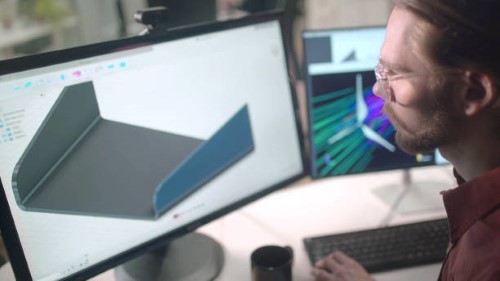Explore the Top Features of the Best Cheap Architect Software

As
you search for affordable architect software, you’ll likely come across
numerous options that claim to meet your needs. But what sets the best cheap
architect software apart from the rest? At the forefront are key features like
compatibility, multiple file format support, and an intuitive interface –
essential for streamlining your workflow. However, there’s more to ponder in
order to guarantee you find the right fit. What other vital features should you
be looking for, and how can they impact your productivity and overall design
experience?
Key Features to Consider
When choosing cheap architect
software, what features should you prioritize to guarantee it meets your needs?
You’ll want to weigh the software’s compatibility with your operating system
and hardware. Look for inexpensive CAD software that supports multiple file
formats, allowing you to easily import and export designs. An intuitive
interface is also vital, making it easier to navigate and use the software.
Additionally, think about the level of customer support offered, such as tutorials,
forums, and technical support. Prosoftstore.com offers affordable CAD software
for professionals and hobbyists alike, with features that cater to different
needs and skill levels. Affordable CAD software should also be scalable,
allowing you to upgrade as your needs grow.
2D and 3D Modeling Tools
Considering 2D and 3D modeling
tools in cheap architect software, you’re looking for features that enable you
to create detailed designs and visualize your projects effectively. A good 2D
toolset should include features like precise drawing, snapping, and alignment
options. It should also support various drawing entities, such as lines, arcs,
and polygons.
In 3D modeling, look for software
that supports multiple modeling techniques, including extrusions, sweeps, and
boolean operations. It should also have tools for creating complex shapes and
editing 3D objects. Real-time rendering and visualization capabilities can also
enhance your design experience. Verify the software supports various 3D file
formats for seamless collaboration and data exchange. By evaluating these
features, you can find the right 2D and 3D modeling tools for your
architectural design needs.
Building Information Modeling
You’ve established a solid
foundation with 2D and 3D modeling tools; now, it’s time to explore Building
Information Modeling (BIM) capabilities in cheap architect software. BIM allows
you to create detailed, data-rich models that include information about
building components and systems. This information can be used to analyze and
simulate various aspects of a building’s performance, such as energy efficiency
and structural integrity. When evaluating cheap architect software with BIM
capabilities, look for features like parametric modeling, clash detection, and
interoperability with other tools. These features enable you to create accurate
and detailed models, identify potential issues, and collaborate with other
stakeholders. Additionally, consider software that supports industry-standard
file formats like IFC and Revit.
Collaboration and Sharing Options

Several cheap architect
software options offer robust collaboration and sharing options, allowing
multiple stakeholders to access and modify project files simultaneously. This
feature enables you to work together with colleagues and clients in real-time,
streamlining the design and review process. You can assign different levels of
access to team members, controlling who can view, edit, or share files. Many
software options also offer cloud-based file sharing and synchronization,
ensuring that everyone is working with the most up-to-date version of the
design. Some software even allows you to track changes and revisions, making it
easy to manage multiple versions of a project. This level of collaboration can
greatly improve project efficiency and accuracy.
Cost and System Requirements
When evaluating cheaparchitect software, to guarantee a suitable choice, it is vital to assess the
cost and system requirements to guarantee the chosen solution aligns with your
budget and computing infrastructure. You’ll need to weigh the software’s
pricing model, such as subscription-based, perpetual license, or free, and
factor in any additional costs for support, updates, or training. Evaluate the
system requirements, including the operating system, processor, RAM, and
storage, to secure the software runs smoothly on your computer. Also, check if
the software is compatible with your existing hardware and software ecosystem.
By pondering these factors, you can make an informed decision and avoid costly
surprises or compatibility issues down the line.
Conclusion
You’ve now explored the top features of the
best cheap architect software. With these tools, you can create data-rich
models, collaborate with teams, and share designs with ease. By considering
compatibility, file format support, and system requirements, you can guarantee
a seamless user experience. Look for software that balances affordability with
robust 2D and 3D modeling capabilities and building information modeling
features to meet your specific needs and budget.
Коментарі
Дописати коментар